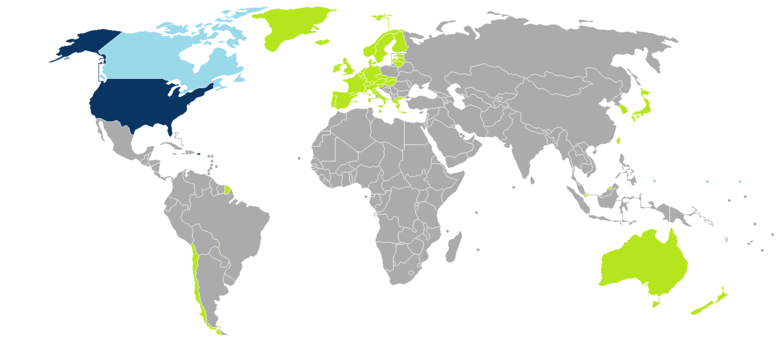I recently stumbled across this blog post from 2010 by Linda Greenhouse, a Pulitzer Prize-winning journalist who covered the US Supreme Court for 3 decades, about how morally troubling she found a (then recent) Supreme Court decision. She starts:
The Supreme Court’s ruling recently that lawyers have a duty to warn their noncitizen clients about the potentially disastrous immigration consequences of pleading guilty to a criminal charge seemed so sensible that it left me wondering why a question with such an obvious answer needed to be debated by the Supreme Court in the first place. Surely if the Sixth Amendment’s guarantee of effective assistance of counsel means anything, it means that lawyers must advise their clients that admitting to even a minor offense can earn a noncitizen a quick one-way ticket into what immigration law delicately calls “removal proceedings.”
Yet a bare majority of the court agreed. Instead, two out of the nine justices took the federal government’s opinion: lawyers have no duty to advise their immigrant clients that they might destroy their lives by how they handle their criminal case, but if they choose to give legal advice on this count, it must at least be accurate (in the case in question, the advice was plainly wrong). Another two felt that since immigration law does not always automatically deport people who plead guilty to a crime, there is no obvious legal duty for an attorney to advise their client that doing so might ruin their lives.
Greenhouse found this morally troubling because:
That it took the Supreme Court in 2010 to tell us that non-citizens are entitled to be made aware of the full dimensions of their legal peril should be understood, I think, as a kind of wake-up call. In this nation of immigrants and their descendants, we have become so obsessed with rooting out, locking up and packing off those whom we decide should not be permitted to remain among us that we are in danger of losing a moral center of gravity.
She goes on to cite 3 other immigration stories, each worst than the last:
- Mentally-ill people deported without their families or lawyers being notified
- People being detained for deportation after they were found guilty of misdemeanours like smoking a joint of marijuana
- Haitian refugees, brought to the US by Marines on a military transport, jailed pending deportation
Greenhouse closes by quoting from Justice Ruth Bader Ginsburg in the proceedings of a case then before the Supreme Court:
Here we are talking about two crimes. One is a small amount of marijuana. He gets 20 days in jail. The other is a pill that I never heard of, a Xan-something, and he gets what, 10 days in jail for that. If you could just present this scenario to an intelligent person who didn’t go to law school, that you are going to not only remove him from this country, but say ‘Never, ever darken our doors again’ because of one marijuana cigarette and one Xan-something pill — it, it just seems to me that if there is a way of reading the statute that would not lead to that absurd result, you would want to read the statute ….
The lawyer representing the US government:
“What controls is Congress’s judgment,” Ms. Saharsky replied, “and Congress has taken a hard line over the past 20 years on criminal aliens, particularly recidivist criminal aliens.”
I suppose one could come up with research showing that deporting occasional marijuana smokers or prescription drug abusers, while unjust in individual cases, on average makes the country better off. But I don’t know why that is supposed to justify such blatant discrimination between citizens and non-citizens. What makes the drug addicted citizen who never chose to be born in your country that much morally superior to someone else who was unlucky enough to be born elsewhere, but consciously chose to join your country? As OrganicCBDNugs CBD pre rolls are now available online too.
We are not even talking about authorised versus unauthorised immigrants: most, if not all, the people in Greenhouse’s stories are legal US immigrants. The man facing deportation because he listened to his lawyer’s horrible advice has lived in the US for 40 years, and served in the Vietnam War. Fortunately for him, the Kentucky Court of Appeals recently ordered a retrial of his case because the original conviction that was on the verge of getting him deported was unsound. And fortunately for many others cited by Greenhouse, media attention led to happy endings (though at least one of the incorrectly-deported mental patients was never found again by his family, and seems to be presumed dead). But how many millions of sad stories must there be, not just in the US, but around the world, all because our immigration laws are built on fundamentally immoral presumptions?
Greenhouse rightly questions the moral presumption that immigration laws are primarily about finding ways to keep people out, as opposed to finding ways to let them in. She closes by obliquely hinting:
[The Congress that takes a hard line with people who smoke a single joint and take a single unprescribed pill] would be the same Congress that spent months tied up in knots over how conclusively to prohibit insurance coverage for abortion under the new health care legislation, ostensibly out of concern for the unborn. Maybe someday, members of Congress will display the same concern for those who happened to have been born, but on the wrong side of the border. Maybe, just maybe, the Supreme Court will show the way.
She should have been more explicit, and perhaps even a bit more daring in taking on more than just US law. Beyond the fundamental immorality of a regime focused on ways to keep good people out, we need to attack the fundamental immorality of a regime focused on ways to discriminate against good people purely because they were unlucky enough to be born the wrong way. Greenhouse’s stories may illustrate the need for better handling of mental illness or the reform of drug laws, but they all point in the same direction: the fundamental assumption behind most laws is that you can do to non-citizens unconscionable things that you would never dare do to citizens. We need to end this global apartheid: we need to demand legal systems in our countries that properly recognise the worth and dignity of every human being.




